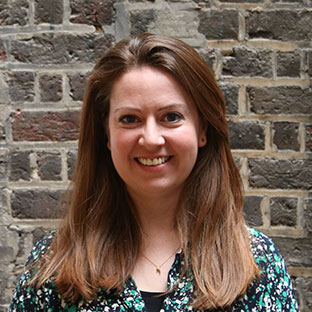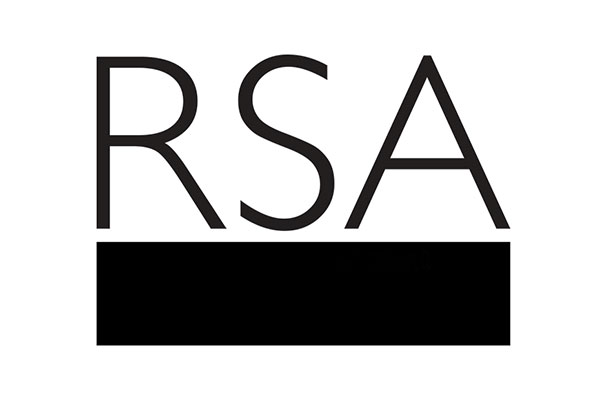As we gear up to reopen Catalyst applications to Fellows later this month, here’s an update on recently funded projects...
Earlier this year we awarded Catalyst grants to a diverse range of projects following a busy second round of applications. An outline of each of the summer 2017 Catalyst Awards is below:
Scaling Awards (each having received a Catalyst grant of £10,000)
- Crisis Classroom trains volunteer and professional teachers to create life-saving and life-changing education for people who find themselves in crisis both inside and outside of the system. Initially designed to serve refugees, the team is building an independent network of pop-up classrooms and trained educators to deliver skills and language-based learning to anyone who needs it. Read more about the work of the project in Laura Partridge’s blog in conversation with Darren Abraham’s FRSA.
- Led by Krissie Nicolson FRSA, Trades Guild Toolkit seeks to develop a toolkit for community organising which can be franchised, based on the East End Trades Guild’s model of organising for micro businesses and the self-employed. Micro businesses are booming, and the EETG model fills the gap created by the changing face of work, providing a new form of representation and organisation to this growing constituency. The finished toolkit will be transferable, enabling the holder to build a Trades Guild in any place at any time. EETG participated in research for RSA report, The Self-Organising Self-Employed, co-authored with the Federation of Small Businesses earlier this year. Learn more in Benedict Dellot’s blog here.
Seed Awards (each having received a Catalyst grant of £2,000)
- Arches at St Winfrid’s Totton aims to establish an arts and music hub where people of all ages can participate in creative and social group activity. The project is led by Christopher Steed FRSA, and designed with inter-generational activity at its heart, with the intention of combating loneliness and social isolation, while helping young people further develop soft skills in a digital age. Impact research for the project will be undertaken in collaboration with the University of Winchester.
- Through The Dis/Ordinary Architecture Project, Jos Boys FRSA has aimed to fill a creativity gap between access and inclusion, promoting activity that develops and captures models of new practice for the built environment, led by the creativity and experiences of disabled artists. Through a series of workshops the group aims to impact in new and innovative ways on architectural and related education and practice, and to evaluate and promote these activities.
- On the Leaders Plus Fellowship programme, new parents will attend baby-inclusive events about progressing in leadership careers. The programme has a strong focus on experiential learning through action learning and work shadowing. This is the first baby-inclusive leadership development offer, is inclusive of men who want to participate, and encourages collective action. The programme also incorporates mental health support. Verena Hefti FRSA leads the project and more information is available via the Leaders Plus website.
- Project lead Ian Peter Christie FRSA is working with Steven Smith FRSA on AstroZoa: expanding cooperation for a sustainable future,which is part of a research project at the University of Surrey’s Centre for Environment and Sustainability. AstroZoa is a social dilemma game/experiment set in space. The game addresses concerns about the environment, alongside challenges in recruiting participants for social science research, breaking down traditional barriers between academia and popular culture with the intention of developing better and faster ways to enhance and institutionalise cooperation. The grant will enable a crowdfunding campaign to finance the game development.
- Gerry Proctor FRSA leads Catalyst project, ‘Developing an Office of Civic Imagination to move civic society from individual acts of voluntarism to Governance of the Commons’.The initiative applies the lessons and methods of the successful collaborative city initiative in Bologna, Italy (the co-Bologna project). The theoretical foundation for this project was laid by Elinor Ostrom’s work ‘Governing the Commons’ (1990), for which she won the Nobel Memorial Prize in Economic Sciences. This is the first stage of a 3-stage project, in which community members in Dingle, Liverpool, will engage in a participatory research project with the aim of mapping and understanding barriers to achieving a more collaborative form of governance of publicly-owned assets and services in the area. The project utilises methods of co-creation and participatory research associated with increased levels of social capital, self-efficacy and social empowerment.
- Brody Hannan FRSA’s Access CV is an online platform providing free and individualised CV, application and interview coaching for high school students in Australia. The resource enables disadvantaged students who may not otherwise have access to guidance the opportunity to access careers support at a critical time. The grant is intended to seed the development of the platform, enabling it to become sustainable in the longer term.
- Project Description: INKLUSION is a campaigning, advocacy and support network for voluntary sector organisations working to end furniture and other forms of poverty in Greater Manchester. The project, led by Helen Middleton FRSA, provides up-to-date technical, regulatory and policy guidance (national, local and devolution-related), along with business development and fundraising advice. Inklusion aims to be the voice for furniture reuse in Greater Manchester.
These Catalyst grants are in varying stages of their development – some completed, some just getting started – but the Fellows behind each initiative are invested in the work undertaken and likely keen to hear from the network about possible ways of working together.
In other news, we’re streamlining our Catalyst criteria and outlining a little more about our grant-awarding process for Fellows. This information will be available on our website when Catalyst applications reopen to Fellows on 12th December. The deadline for the first round of 2018 Catalyst applications is 22nd January and we look forward to reading the incoming submissions. For now, contact us with any questions about the Catalyst Award programme, including how to apply.
Related articles
-
Empowering Women farmers in Vietnam
Alison Kwan
How Alison Kwan FRSA, winner of RSA Catalyst Seed Grant, is using the Grant to create an innovative, sustainable way to empower Women in Central Vietnam to be independent farmers.
-
First Round of successful Catalyst 2017 applicants announced
Kimberley Staines
Find out which Fellow-led projects were awarded the first RSA Catalyst grants of 2017.
-
‘More than the money’; the power of Fellowship for RSA Catalyst
Jade Jackson
Jade Jackson explains why the Fellowship is the magic ingredient of the RSA's Catalyst grants sheme.



Join the discussion
Comments
Please login to post a comment or reply
Don't have an account? Click here to register.
Good to see these updates. Maybe there is a small research project here to analyse all submissions and awards with a view to improve submissions, identify additional support and evolve the program? Maybe even fellow-led given RSA resource constraints and priorities?